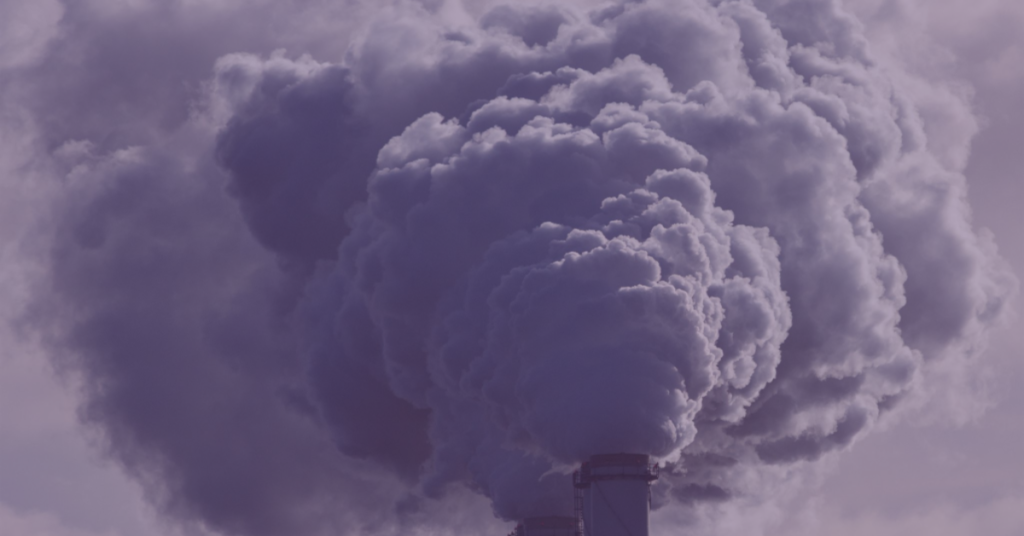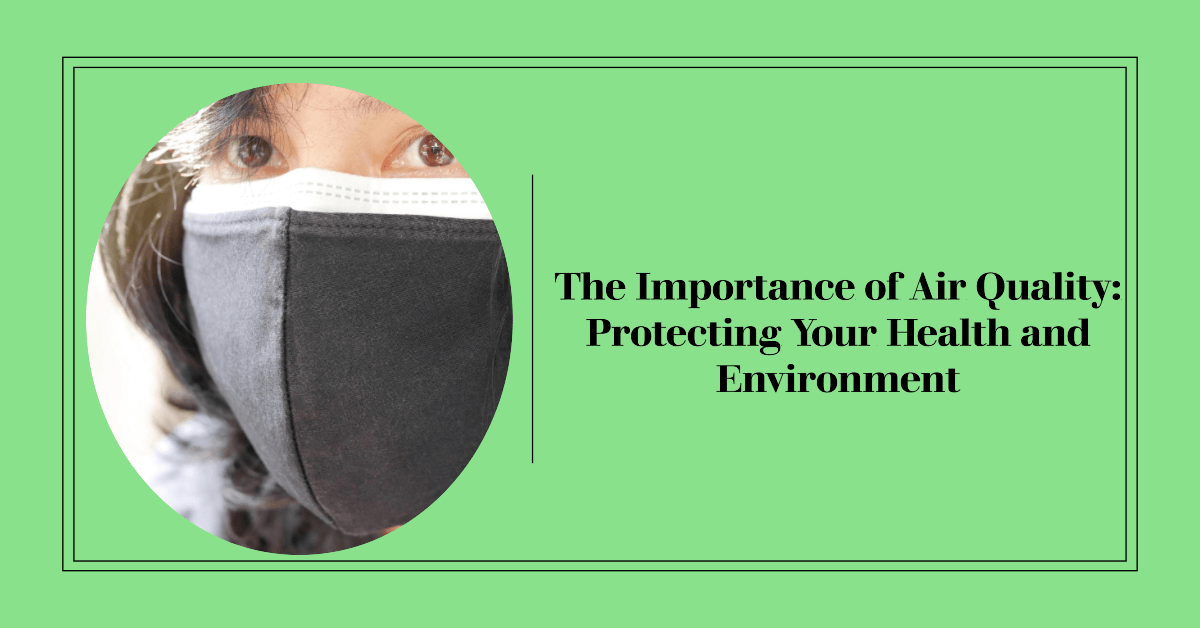Clean air is something we often take for granted, but the Importance of Air Quality becomes strikingly evident when we consider its impact on our health and the environment. The air we breathe impacts our health and the environment in profound ways. In this comprehensive guide, we will explore why air quality matters and what we can do to protect it.
Importance of clean air Clean air has far-reaching effects on our health and the environment. It’s not just about feeling comfortable when we take a deep breath. It affects our overall quality of life, from the air we breathe to the climate we live in.
What is Air Quality?
Air quality refers to the condition of the air we breathe. It depends on the presence of pollutants, both natural and human-made, in the atmosphere. Essentially, it’s the measure of how clean or polluted the air around us is.
Factors Affecting Air Quality
Several factors influence air quality. Emissions from vehicles, industrial processes and even natural events like wildfires all play a role in determining the quality of the air we breathe.
- Natural Factors: Natural events like wildfires, volcanic eruptions and dust storms can impact air quality. These events release particles and gases into the atmosphere, affecting the air we breathe.
- Human Activities: Human actions, such as industrial processes, transportation and energy production, release pollutants into the air. These pollutants can have significant consequences for our well-being.

Measuring Air Quality with AQI
The Air Quality Index (AQI) is a valuable tool used to measure air quality. It provides a straightforward way for the public to understand the cleanliness of the air and the associated health risks. The AQI takes into account various pollutants, providing a single number to represent overall air quality.
Health Implications
The quality of the air we breathe has a direct impact on our health and when it’s compromised, it can lead to various health issues.
Breathing Easier: The Link Between Air Quality and Health
Good air quality is essential for healthy lungs. Poor air quality can lead to various respiratory issues, making it difficult to breathe and potentially causing long-term health problems.

Respiratory Issues
Air pollution can trigger or worsen respiratory conditions such as asthma, bronchitis and chronic obstructive pulmonary disease (COPD). For people with these conditions, poor air quality can be particularly harmful.
Cardiovascular Health
Air pollution is not just a threat to our lungs; it also affects our heart health. Studies have shown a connection between poor air quality and heart diseases, including heart attacks and strokes.
The Importance of Air Quality and Allergies:
Poor air quality can worsen allergy-related discomfort. When the air contains allergens like pollen and mold spores, which can be more prevalent in polluted air, it intensifies allergy symptoms. This can make life challenging for individuals who already contend with allergies. Clean air significantly alleviates these symptoms and enhances overall quality of life.
Vulnerable Populations at Risk
Certain groups are more vulnerable to the health effects of poor air quality. This includes children, the elderly and people with pre-existing health conditions. For them, exposure to pollutants can be especially dangerous.
Air Quality Effects on Children:
Children are especially vulnerable to the consequences of poor air quality. Their developing lungs are more susceptible to damage from pollutants. This makes ensuring clean air especially vital for our youngest generation. Exposure to air pollution during childhood can lead to long-term health issues, including reduced lung function and an increased risk of respiratory illnesses.
Environmental Consequences
Air quality isn’t just about us; it impacts the entire planet. Let’s explore its broader environmental implications. Air quality not only affects our health but also has far-reaching environmental consequences. We’ll consider the importance of air quality and atmospheric aerosols and how atmospheric aerosols can affect human health.

Climate Change and Air Pollution
Poor air quality contributes to climate change by releasing greenhouse gases into the atmosphere. This contributes to global warming and all its associated effects.
Environmental Impact of Air Quality: Air pollution is a major contributor to climate change. Greenhouse gases like carbon dioxide (CO2) and methane (CH4), released from human activities, including burning fossil fuels, trap heat in the atmosphere, leading to global warming and its associated effects. Furthermore, poor air quality can harm ecosystems and wildlife. It can result in acid rain, which can damage forests, lakes and rivers. Pollutants in the air can also directly harm plants and animals, disrupting ecosystems.
Air Quality in Atmospheric Aerosols: An often-overlooked aspect of air quality is the presence of atmospheric aerosols. These tiny particles suspended in the air play a significant role in air quality. While some aerosols can be detrimental to health, others can have cooling effects on the climate by reflecting sunlight back into space. Understanding these aerosols is vital for managing air quality and addressing climate change.
Importance of Air Quality and Atmospheric Aerosols: The interaction between air quality and atmospheric aerosols is complex. Some aerosols can carry harmful substances deep into our lungs, leading to health problems. This underscores the need to study atmospheric aerosols to assess their impact on human health.
Effects on Ecosystems and Wildlife
Air pollution harms ecosystems and wildlife. It can damage forests, lakes and rivers and disrupt the lives of animals. This disruption can have ripple effects throughout entire ecosystems.
- Damage to Forests: Air pollution can harm forests by causing acid rain. This rain damages trees and makes the soil more acidic, affecting plant life and the animals that depend on it.
- Impact on Water Bodies: Pollutants from the air can end up in lakes and rivers, harming aquatic life. Fish and other creatures in these water bodies can suffer from the effects of air pollution.
- Disruption of Wildlife: Air pollution can disrupt the lives of animals. For example, birds may struggle to find food in polluted areas and insects vital for pollination may be affected. These changes can have far-reaching consequences for entire ecosystems.
Regulation and Standards
Governments play a significant role in maintaining air quality through regulations and standards. Governments worldwide recognize the importance of maintaining air quality and have implemented regulations and standards to address this critical issue.
Keeping the Air Clean: Government Regulations
Governments worldwide implement regulations to limit air pollution. These regulations cover a wide range of sources, from vehicles and industrial processes to power plants and construction sites.
Air Quality Standards: Air quality standards are specific limits or guidelines established by regulatory agencies. They control the concentration of pollutants in the air, aiming to protect both human health and the environment. These standards define acceptable pollutant levels.
Importance of Air Quality Index (AQI): The Air Quality Index (AQI) is a valuable tool that communicates air quality information to the public in an accessible way. It assigns a numerical value and a color code to indicate the level of health concern associated with measured pollutants. The AQI empowers people to understand air quality easily.
Importance of Air Quality Management and Maintenance: Maintaining air quality at acceptable levels is an ongoing effort that involves both the public and private sectors. This includes implementing strategies to reduce emissions, improving air quality monitoring and taking corrective actions when necessary.
Importance of Air Quality Maintenance: Regular maintenance of air quality is crucial for preventing air pollution from reaching hazardous levels. It involves ongoing monitoring, efforts to reduce pollutants and public awareness campaigns.
Monitoring Air Quality
To ensure that regulations are followed and standards are met, monitoring air quality is crucial. This involves collecting data on pollutant levels and assessing them against established standards.
Importance of Air Quality Monitoring: Air quality monitoring involves tracking pollutant levels in the air. Advancements in technology have made it easier for individuals and communities to access real-time air quality data. Monitoring provides valuable insights into the current state of air quality, enabling us to take appropriate actions to protect our health.

Importance of Air Quality Compliance
Compliance with air quality regulations is crucial for safeguarding public health and the environment. It ensures that the air we breathe remains safe and clean.
Monitoring and Improvement
Apart from government efforts, individuals and communities can contribute to monitoring and improving air quality.
Importance of Air Quality Improvement: Beyond monitoring, there are proactive steps we can take to improve air quality. These actions include reducing energy consumption, using public transportation and supporting policies that promote cleaner air. By collectively working to reduce emissions and limit air pollution sources, we can create a healthier environment.
Importance of Air Quality Control: Implementing control measures in industries and transportation sectors is crucial for reducing emissions and preventing air pollution. These measures can range from using cleaner fuels to implementing stricter emissions standards. Air quality control efforts contribute significantly to cleaner air for all.
Air Quality in Air Filters: Air purifiers play a crucial role in maintaining clean indoor air. Products like air filters can help remove pollutants and allergens from the air, enhancing the quality of the air we breathe indoors. These filters are an important part of air quality control at the individual level.
Keeping an Eye on the Air: Air Quality Monitoring
Advancements in technology have made it easier to monitor air quality. This information is often readily available to the public through various platforms and apps, empowering individuals to make informed decisions.
How You Can Contribute
Everyone can play a part in maintaining clean air by reducing their carbon footprint and advocating for clean energy solutions. By making environmentally conscious choices, individuals can help improve air quality for everyone.
Benefits of Clean Air
Clean air offers numerous benefits beyond just feeling better when we breathe. Let’s explore some of these advantages.
Improved Health: Clean air contributes to improved health and well-being. It reduces the risk of respiratory issues, making it easier to breathe and lowering the likelihood of conditions like asthma and bronchitis. Additionally, clean air promotes cardiovascular health, reducing the risk of heart attacks and other heart-related problems.
Productivity and Quality of Life: Clean air enhances our daily lives in various ways. It increases energy levels and improves productivity, helping us accomplish more. Furthermore, it supports better sleep patterns, leading to more restful nights and increased overall well-being. Cleaner air also encourages outdoor activities and exercise, promoting an active and healthier lifestyle.
Air Quality Awareness: Raising awareness about the importance of clean air is crucial. When individuals, communities and policymakers understand the benefits of clean air, they are more likely to support efforts to protect and improve it. Air quality awareness is the foundation of collective action to ensure cleaner air for everyone.
The Upside of Fresh Air
Clean air translates to a better quality of life. It means being able to enjoy the outdoors without worrying about the air we’re breathing.
Improved Health and Well-being
importance of clean air leads to better physical and mental health. It reduces the risk of respiratory and cardiovascular diseases and contributes to an improved quality of life.
Productivity and Quality of Life
Clean air enhances productivity, supports economic growth and makes communities more enjoyable places to live. It’s an essential component of a high quality of life.
Conclusion: The Crucial Role of Air Quality
In conclusion, air quality is a fundamental aspect of our lives. It impacts our health, our environment and the quality of life we enjoy. Recognizing its importance is the first step towards taking action for a healthier and more sustainable future.
“The fight for clean air is a fight for our future.”
FAQs on Importance of Air Quality
Why is Air Quality Important for Life on Earth?
Air quality is crucial for life on Earth because it directly impacts the well-being of both living organisms and the environment. Clean air is essential for several reasons:
Health: Good air quality is vital for human and animal health. Breathing clean air reduces the risk of respiratory problems, allergies and other health issues.
Environmental Balance: Clean air contributes to the balance of ecosystems. It supports healthy plant growth, which, in turn, sustains wildlife.
Climate Stability: Maintaining clean air helps regulate the planet’s climate by reducing greenhouse gas emissions, which contribute to global warming.
Agriculture: Clean air is essential for crop growth. Pollution can harm plants, reducing agricultural yields and food production.
Quality of Life: It directly affects our quality of life. Clean air enhances outdoor experiences, making it enjoyable for people to spend time in nature.
Why is Poor Air Quality Important?
Poor air quality poses significant risks and problems:
Health Issues: It leads to various health problems, including respiratory diseases, cardiovascular issues and even premature death.
Environmental Damage: Poor air quality harms ecosystems, damages forests and contaminates bodies of water, affecting aquatic life.
Climate Change: It contributes to climate change by releasing greenhouse gases, worsening global warming and its associated effects.
Reduced Crop Yields: Pollution affects agriculture, reducing crop yields and food production.
Economic Costs: It results in substantial economic costs due to healthcare expenses and reduced worker productivity.
How Does Air Quality Help the Environment?
Good air quality benefits the environment in several ways:
Ecosystem Health: Clean air supports healthy ecosystems by promoting plant growth and preserving biodiversity.
Climate Regulation: It helps regulate the Earth’s climate by reducing greenhouse gas emissions, which mitigate global warming.
Water Quality: Air quality impacts water bodies, so clean air indirectly contributes to clean water and aquatic life.
Pollution Control: Clean air reduces the release of pollutants into the environment, minimizing harm to natural habitats.
Sustainability: It sustains the delicate balance of life on Earth, ensuring the long-term well-being of the planet.
How Important is Air Quality in Your Home?
Air quality at home is crucial for your health and comfort:
Health: Poor indoor air quality can lead to respiratory issues, allergies and other health problems for you and your family.
Comfort: Clean air enhances the comfort and livability of your home, making it a pleasant place to reside.
Productivity: Good air quality can boost productivity, as you’re less likely to be affected by health issues caused by poor indoor air.
Energy Efficiency: Proper ventilation and air quality management can also improve energy efficiency and reduce utility costs.
How Does Air Quality Impact Us?
Air quality has a direct impact on our well-being:
Health: Poor air quality can lead to respiratory problems, heart diseases and even lower life expectancy.
Quality of Life: It affects our quality of life, as we may avoid outdoor activities when air quality is poor.
Productivity: Clean air can enhance productivity and concentration, while poor air quality may lead to discomfort and distraction.
Mental Health: There’s evidence that air quality can influence mental health, with better air associated with improved emotional well-being.
Is Air the Most Important Thing in Life?
While air is crucial for life, it’s just one of many essential elements that sustain us. Water, food and shelter are equally vital for human survival. All these factors, including air quality, collectively contribute to our well-being.
What Happens If the Air Quality Is Really Bad?
When air quality is exceptionally poor, several consequences may occur:
Health Issues: Increased cases of respiratory problems, allergies and aggravated chronic conditions.
Visibility Problems: Reduced visibility due to smog or haze, which can impact transportation and safety.
Environmental Damage: Harm to ecosystems, forests and aquatic life.
Economic Costs: Higher healthcare costs, reduced worker productivity and potential damage to agriculture and industries.
Who Has the Worst Air Quality in the World?
Several cities and regions around the world experience poor air quality at different times. Cities in India, China and the Middle East often face severe air pollution issues, with high levels of pollutants like particulate matter and nitrogen dioxide.
What Are the Five Importance of Air?
The five key importance of air are:
Breathing: Air is essential for the respiration of humans and most animals.
Photosynthesis: Plants use carbon dioxide from the air to produce oxygen and glucose through photosynthesis.
Climate Control: Air regulates the Earth’s climate by transporting heat and moisture around the planet.
Pollutant Dilution: Air disperses pollutants, reducing their concentration and impact.
Sound Transmission: Air allows the transmission of sound waves, facilitating communication and the sense of hearing.
What Has the Biggest Impact on Air Quality?
The biggest impact on air quality comes from human activities, including:
Transportation: Emissions from vehicles release pollutants like carbon monoxide, nitrogen oxides and particulate matter.
Industry: Industrial processes release a range of pollutants, including sulfur dioxide, volatile organic compounds and heavy metals.
Energy Production: Power plants burning fossil fuels emit pollutants like sulfur dioxide, nitrogen oxides and carbon dioxide.
Agriculture: Farming activities, including livestock and fertilizer use, release ammonia and methane into the air.
Waste Management: Landfills and waste incineration produce methane and other harmful emissions.
How Does Air Quality Affect the Earth?
Air quality significantly impacts the Earth by contributing to climate change, affecting ecosystems and wildlife and posing risks to human health. It’s a complex interplay that influences the planet’s overall health and sustainability.
What Are the 3 Main Causes of Air Pollution?
The three primary causes of air pollution are:
Emissions from Vehicles: Exhaust fumes from cars, trucks and other vehicles release pollutants like carbon monoxide, nitrogen oxides and particulate matter.
Industrial Processes: Factories and industrial facilities release a range of pollutants, including sulfur dioxide, volatile organic compounds and heavy metals.
Energy Production: Power plants burning fossil fuels emit pollutants like sulfur dioxide, nitrogen oxides and carbon dioxide.
DheerajSonwane is a dedicated writer with expertise in air purification technologies. He focuses on providing well-researched content to help readers improve indoor air quality in homes and businesses. As the lead writer at AirPurifierMaster.com, Dheeraj offers practical advice his insightful reviews guide individuals in choosing the best air purifiers for their needs.


3 thoughts on “The Importance of Air Quality: Protecting Your Health and Environment”